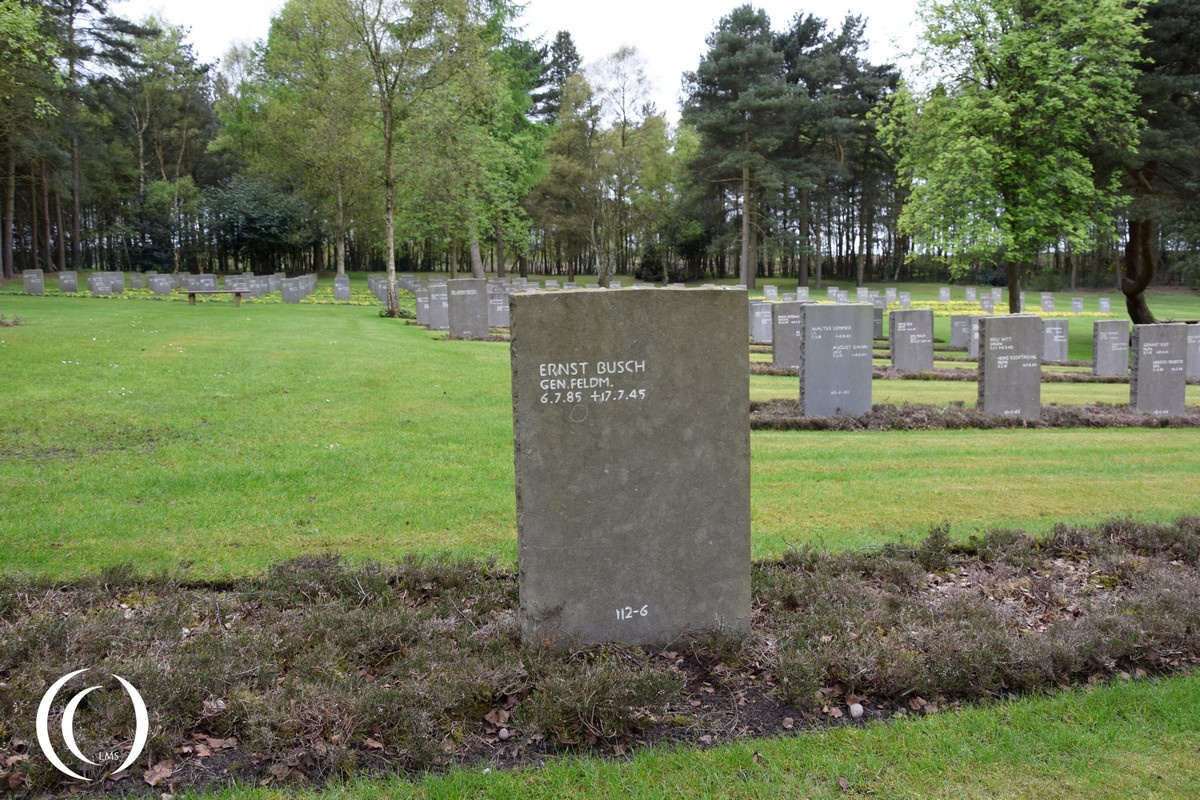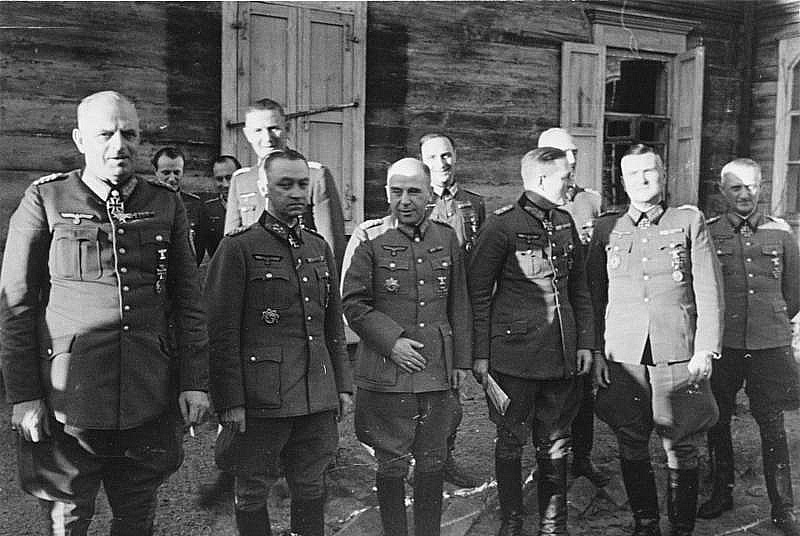
Generalfeldmarschall Ernst Busch was born Ernst Bernhard Wilhelm Busch on 6 July 1885 in the German town of Essen. During World War One he fought mainly on the Eastern Front. His military career started when he was 12 years old. After cadet school he was taken into the Prussian Army. In 1913 he was promoted to Lieutenant and transferred to the War School where he worked as inspection officer.

World War One
During World War One Ernst Busch was company commander of the Infantry Regiment “Vogel von Falckenstein”.
He fought many battles during the First World War on the Eastern Front like the First Battle of Ypres, Battle of Verdun and the German Spring Offensive of 1918. During the war he was promoted to Captain, within months he received both the Iron Cross Second Class and the Iron Cross First Class and the Order Pour Le Mérite in 1918 and was wounded three times.

Interbellum
During the interwar period he stayed in the German Army on various staff positions. He was an ardent supporter of Adolf Hitler. He received a series of quick promotions and soon held the rank of General der Infantry (General of Infantry).

World War Two
In World War Two Ernst Busch fought as commander of the VIII Army Group in 1939 during the invasion of Poland. The following year he fought with the 16th Army during the Battle of France, Fall Red, on the left flank of Heinz Guderian’s XIX Panzer Corps. On 19 July 1940 Ernst Busch was promoted to Generaloberst – Colonel general.
During Operation Barbarossa the 16th Army was assigned to Army Group North. It captured Staraya Russia. The 16th Army had nine infantry divisions, two motorized divisions and one division in reserve. During the Soviet Winter Offensive in 1942 parts of the 16th Army became encircled and Generaloberst Ernst Busch nearly lost the city Staraya, Russa. Busch had to resort to his reserve to hold the city.
Generaloberst Georg von Küchler was dissatisfied with Ernst Busch’s performance. His “halt” order had cost the Germans dearly for the Germans lost the 290th Infantry Division completely, and Küchler together with Generaloberst Frans Halder wanted Ernst Busch relieved of his command. Ernst Busch benefited from his unconditional loyalty towards Adolf Hitler and the request for his dismissal was denied.
The 16th Army was reinforced during the spring of 1942, the city of Demyansk was released and the garrison in Cholm was freed. Soviet attacks were concentrated on the 18th Army further north. Busch 16th Army concentrated on defending Demyansk and Staraya Russa and did not have to deal with any critical situations that season.
Despite his mediocre performance as commander he was promoted to Generalfeldmarschall on the 1st of February in 1943.

Army Group Center
After Günther von Kluge was seriously injured in a car accident Generalfeldmarschall Ernst Busch was ordered to hold command by Adolf Hitler. Ernst Busch was overwhelmed by duties of an army group leader; he hadn’t proven himself on the battlefield and relied solemnly on Hitler’s assessment of the situation and followed Hitler’s instructions at all costs.
In 1944 an increased build-up of Soviet forces was largely ignored by Ernst Busch. His army commanders did see the threat, warned him and asked to retreat. This was denied by Adolf Hitler, Adolf asked if Busch was now one of the Generals that did look back. Busch followed Hitler’s command, against all odds. Army Group Center was no match for the Soviet Spring offensive; 700.000 Germans soldiers were outnumbered by 2.500.000 Soviets.
Generalfeldmarschall Ernst Busch and Army Group Centre lost 25 full divisions during the battles, 250.000 to 300.000 men.

Ernst Busch was relieved from his command by Adolf Hitler on 28 June 1944 and replaced by Walter Model who halted the Soviet momentum.
Ernst Busch retired to the German city of Ostbevern, his loyalty to Hitler saved him from a possible court-martial.
He was recalled for duty on 20 March 1945, seven weeks before war’s end. Ernst Busch was reinstalled as commander of Army Group H, later called Army Group Northwest. Busch had few resources and the men lacked respect for him. Ernst surrendered to Field Marshal Bernhard Montgomery on 4 May 1945. Generalfeldmarschall Ernst Busch was a prisoner in the Aldershot camp in Hampshire England.
He died of a broken man of angina pectoris on July the 17th in 1945. He was buried without ceremony at Aldershot Military cemetery and reburied at Cannock Chase German War Cemetery.



Visit
The grave of Generalfeldmarschall Ernst Busch can be visited on Cannock Chase German Military Cemetery on field 6, grave 112.
